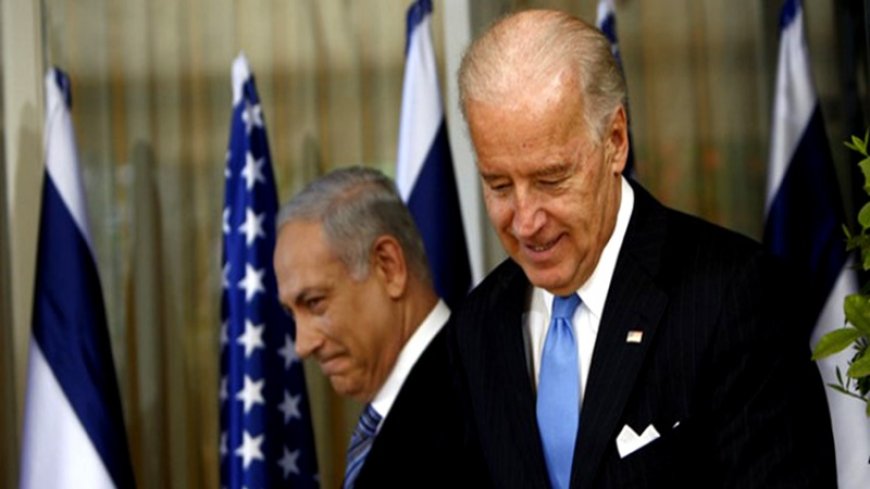The US and Opposition to the Judicial Reform Bill in Israel
The US and Opposition to the Judicial Reform Bill in Israel

More than 3,500 academics and artists from the Zionist regime sent an open letter asking the US president and UN secretary general to refuse to meet with Israeli PM Benjamin Netanyahu and prohibit him from speaking at the UN General Assembly. This request came after US President Joe Biden, who several months ago refused to meet with Netanyahu, finally gave in and stated that he was ready to meet with the Israeli prime minister, but not at the White House as Netanyahu wanted, but on the sidelines of the UN General Assembly session. Axios quoted two Israeli officials as writing that Netanyahu felt helpless and humiliated at not being invited to the White House, pressuring Israeli Ambassador to Washington Michael Herzog to arrange a meeting with Biden. Previously, the Yediot Aharonot newspaper revealed the Israeli prime minister's continued request to visit the White House and meet with the US president, as well as his readiness to make concessions to achieve this goal.
6 months ago, Netanyahu, who was dissatisfied with not being invited to America, instructed his staff not to meet with American officials as long as he was not invited to the White House to meet with the president of this country. After that, the Zionist media revealed the Biden administration's conditions for arranging a meeting between the president of this country and the prime minister of the Zionist regime. Israeli military radio stated that the American government determined new conditions for the meeting of Joe Biden and Benjamin Netanyahu. The radio announced on its website that top White House officials had sent a letter to the Prime Minister's office of the Zionist regime, allowing Netanyahu to come to the White House and meet with Biden, as well as obtain American assistance for the normalization of relations between Tel Aviv and Riyadh on condition of stopping the legalization process Judicial reform bill. After returning to power, Netanyahu introduced a judicial reform bill, which his opponents called a "judicial coup", and since 9 months, they have been holding protest demonstrations every Saturday to express their rejection.
Yesterday, Tuesday, the streets leading to the Supreme Court became the location for protests against this. A number of supporters of this bill also demonstrated today and committed street violence against the opposition. On Monday evening, thousands of Zionists living in the occupied territories went to Netanyahu's residence after street demonstrations and gathered in front of his home in occupied Jerusalem to protest a draft law on judicial changes that Netanyahu's cabinet wants to approve in the Knesset. Yesterday, Tuesday, the Supreme Court of the Zionist regime, with the presence of 15 judges, met for the first time to review complaints against the repeal of the “evidence of reasonableness” law, and at the end of the 13-hour marathon hearing, the defenders and plaintiffs of the known controversial law as "removal of the reasonableness argument" were given 21 days to complete their arguments.
In fact the Supreme Court by buying time prevented the current internal frictions and clashes from getting worse, but it seems that this truce is temporary, and after Netanyahu's return from a visit to New York, especially after the announcement of the Supreme Court vote at the end of the deadline, the flames of this confrontation will flare up again.In addition, with Netanyahu's visit to New York the domain of protest will widen from occupied Palestine to the United States, and there opponents of the judicial coup bill will voice their opposition. (MF)













































